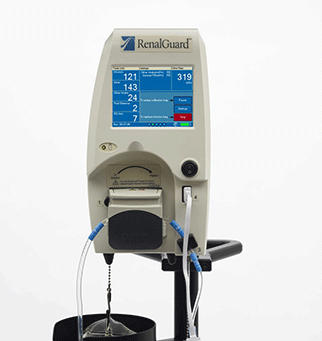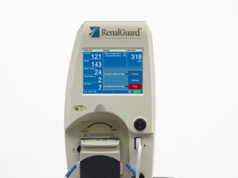
A new meta-analysis presented this week at the American College of Cardiology 66th Scientific Sessions (ACC; 17-19 March, Washington DC, UK) offers support to the ability of RenalGuard therapy to significantly reduce the incidence of acute kidney injury associated with cardiovascular interventional procedures compared to other methods of urine volume expansion.
Findings from the analysis show the use of RenalGuard therapy to be associated with reduced risk of mortality, major adverse cardiovascular events, and the need for post-procedure dialysis.
Andrew Halpert, president of RenalGuard Solutions, noted that a US pivotal clinical trial of RenalGuard was currently on track to complete at the end of 2017, and if positive, the company planned to seek marketing approval from the US Food and Drug Administration in 2018.
The new meta-analysis, presented as a poster by researchers from the University of Texas Health Sciences Center, San Antonio, included data from nine studies comparing the use of RenalGuard to conventional volume expansion. Six were randomised controlled trials using RenalGuard in the treatment of patients undergoing various cardiovascular diagnostic and therapeutic interventions. Primary outcomes in the analysis included the incidence of contrast-induced acute kidney injury (CI-AKI) and relative risk (RR). Secondary outcomes included the incidence of mortality, major adverse cardiovascular events, and the need for post-procedure dialysis.
The investigators found RenalGuard therapy to be associated with a significant risk reduction in CI-AKI compared to the control therapy (RR: 0.409; 95% CI: 0.282-0.591; p < 0.001). The incidence of CI-AKI in RenalGuard-treated patients was 8.7% versus 23% in the control group (p < 0.001). Use of RenalGuard was also associated with decreased mortality (RR 0.425, 95% CI: 0.183- 0.987, p=0.047), dialysis (RR 0.197; 95% CI 0.063-0.614, p=0.005) and MACCE (RR 0.421, 95% CI: 0.273-0.651, p<0.001) compared to standard hydration.













